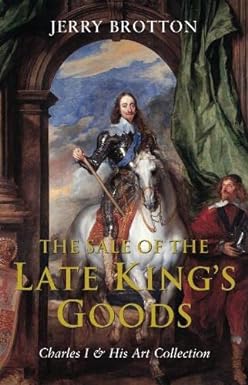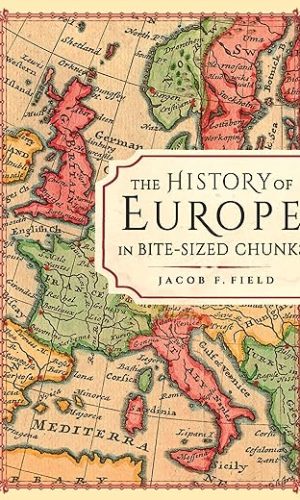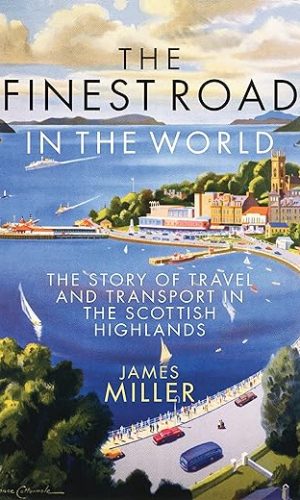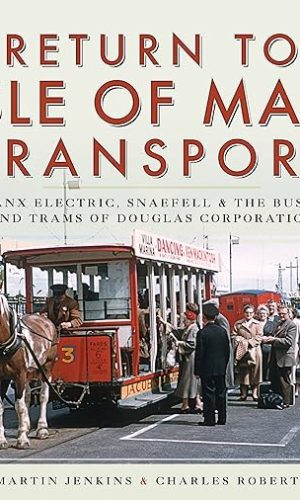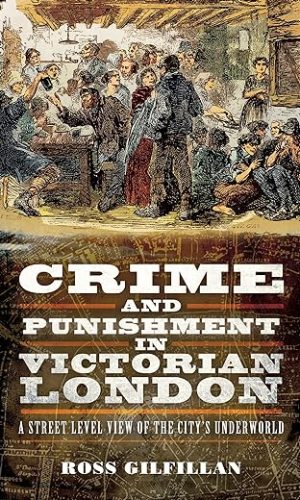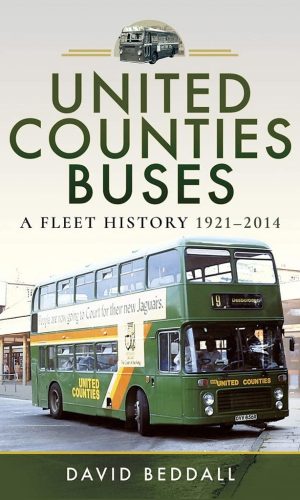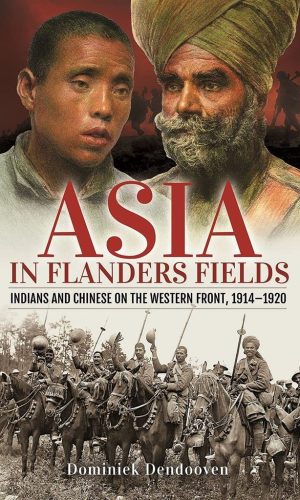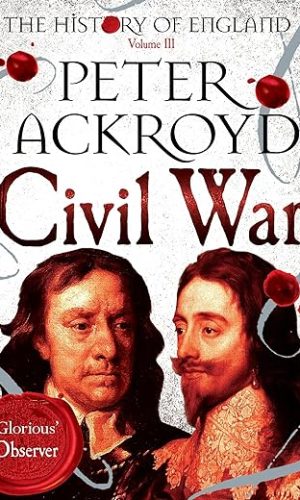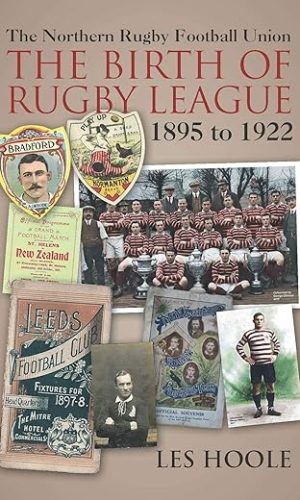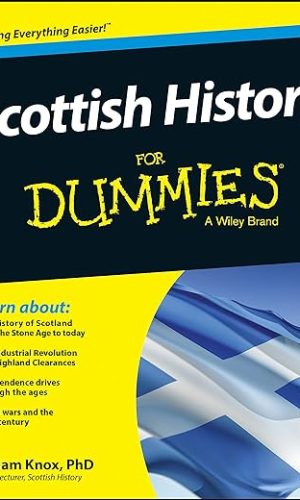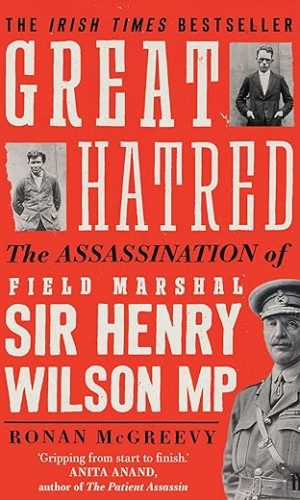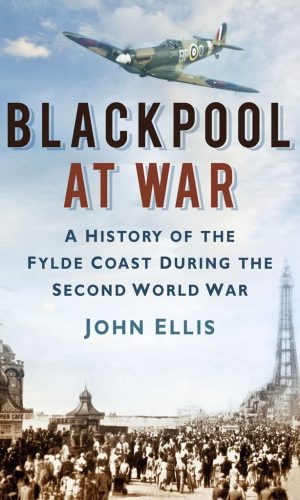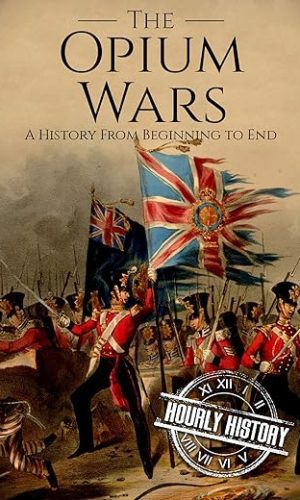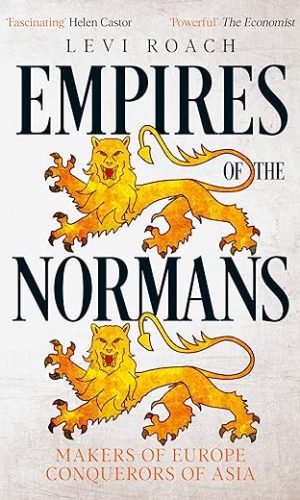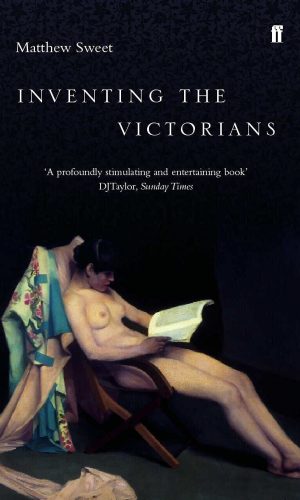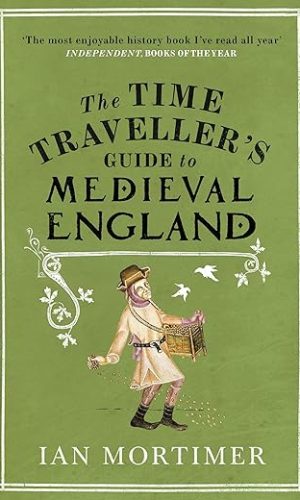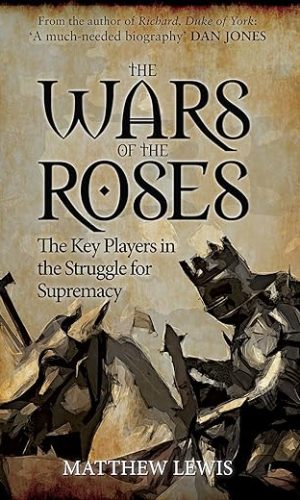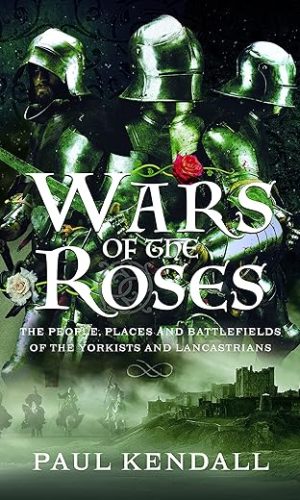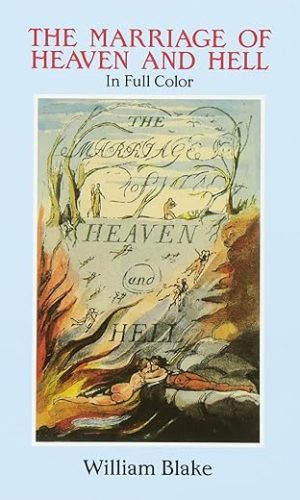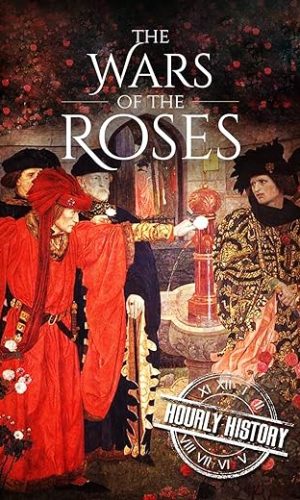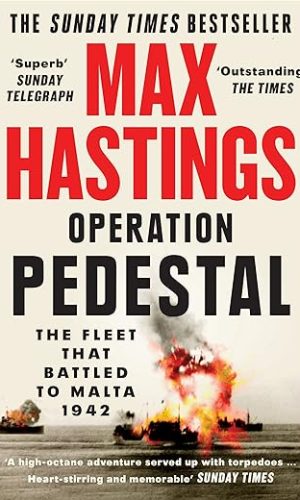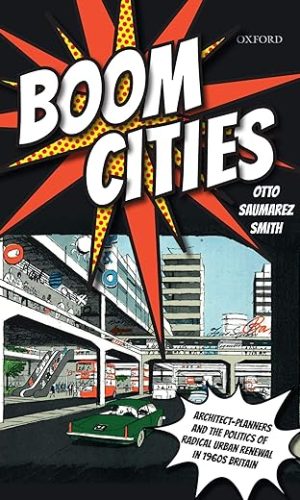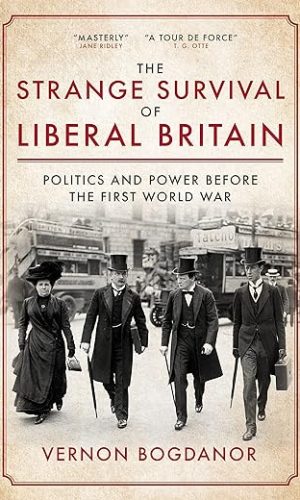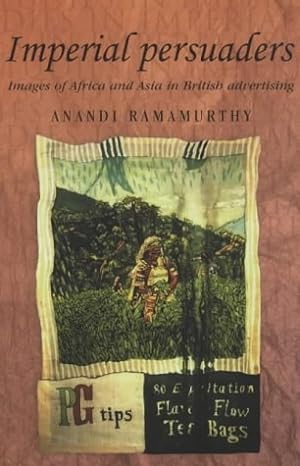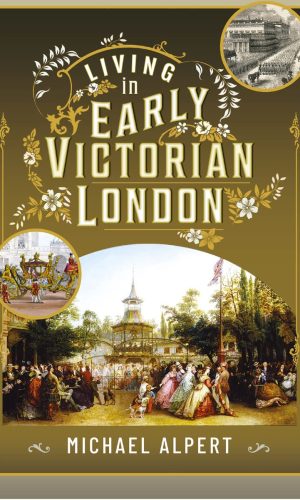Europe
-
The Sale of the Late King’s Goods: Charles I and his Art Collection
`So wonderful and glorious a collection, that the like will never again be met with.’ This is how one awed and wistful observer described King Charles’ artworks. As an acquirer of paintings by Europe’s great masters and patron of Rubens and Van Dyck, Charles’s extravagance in amassing his collection only exacerbated the parliamentary disapproval that led to civil war and the King’s own execution. After his death, one of the Commonwealth’s first decrees was to sell off his treasures to raise money for the new regime. After the Restoration, one of Charles II’s first resolutions was to get the collection back.
Jerry Brotton tells the remarkable story of the king and his pictures: their acquisition, dispersal and eventual recovery. He reveals a world in which diplomats doubled as art dealers, and in which the king’s plumber could be temporary owner of Bassano’s The Flood. This is a vivid portrait of a tragic king and his decadent court, set against the backdrop of political conflict and civil war, which also offers a new and compelling perspective on art and the evolution of collecting in England.
Read more
£3.20 -
A Short History of England: Simon Jenkins
From the invaders of the dark ages to the aftermath of the coalition, one of Britain’s most respected journalists, Simon Jenkins, weaves together a strong narrative with all the most important and interesting dates in a book that characteristically is as stylish as it is authoritative.
A Short History of England sheds light on all the key individuals and events, bringing them together in an enlightening and engaging account of the country’s birth, rise to global prominence and then partial eclipse.There have been long synoptic histories of England but until now there has been no standard short work covering all significant events, themes and individuals.
Now updated to take in the rapid progress of recent events and beautifully illustrated, this magisterial history will be the standard work for years to come.
Read more
£4.70£9.50A Short History of England: Simon Jenkins
£4.70£9.50 -
The History of Europe in Bite-sized Chunks
An accessible and succinct account of the story of Europe from its ancient foundations to the twenty-first century, The History of Europe in Bite-sized Chunks details the events, personalities, ideas and disasters that have shaped our continent.
The book is broken down into six easily digestible chapters: Classical Antiquity (2600 BCE to 600 CE); Medieval (600-1500); Reform and Enlightenment (1500-1780); Age of Revolutions (1780-1914); the Wars (1914-45); and the Making of Contemporary Europe (1945 to present). It begins with the first ancient culture to emerge in Europe: the Minoans. It then proceeds chronologically to the present day, taking in not just significant historical events but also overarching social, technological and cultural trends and their impact.
Throughout the book there are mini-biographies of notable individuals (such as Julius Caesar, Catherine the Great and Napoleon Bonaparte) who have been most significant in European history. It is also packed with amazing facts, details and maps that will give the reader a vivid understanding of Europe’s past
With the prospect of Brexit looming in Spring 2019, there is no better time to get a handle on European history!
Read more
£0.90 -
The Finest Road in the World: The Story of Travel and Transport in the Scottish Highlands
Trains and stagecoaches stuck in the snow, wild storms driving sailing ships off course, traffic pile-ups on so-called ‘killer’ highways – stories abound about the horrors of travel in the Highlands and Islands, and have done for as far as the records go back.
James Miller tells the dramatic and sometimes surprisingly humorous story of travel and transport in the Highlands. Some of the figures in the story are familiar – General George Wade, Thomas Telford and Joseph Mitchell among them – but there are a host of others too, including the intrepid Lady Sarah Murray, who offered sound advice for travellers (‘Provide yourself with a strong roomy carriage, and have the springs well corded’).
This thought-provoking book will appeal to all who like stories of travel and transport, and are interested in how changing modes of transport have affected the ways of life in the Highlands and remain crucial to the modern life and the future of the region.
Read more
£2.90 -
Return to Isle of Man Transport: Manx Electric, Snaefell & the Buses and Trams of Douglas Corporation
This is the second book by Martin Jenkins and Charles Roberts, about transport in the Isle of Man. The first volume covered the railway network, where as this new volume covers all other forms, road, rail, sea and air operations. The book is illustrated, using previously unpublished rare early colour pictures, from the Online Transport Archive, which holds over a million transport images. Both the authors have managed to collect together some truly interesting and often stunning pictures, from a period when colour coverage of transport subjects was almost non existent.Read more
£8.80£23.80 -
The English Civil War in 100 Facts
The English Civil War pitted Parliament against the Crown following a breakdown in their relationship, ultimately caused by a struggle over power, religion and control. The Civil War split the country and resulted in the execution of Charles I and the exile of his son, and the English monarchy was replaced first by the Commonwealth of England and then the Protectorate. Oliver Cromwell dominated the politics of the new rule and still divides opinion today, with some seeing him as a brutal dictator and others seeing him as a hero of liberty. The English Civil War in 100 Facts examines the twenty years of intermittent warfare, covering the first, second and third wars, from the initial conflict with Charles I to the fight of Charles II’s supporters with the Rump Parliament. Dr Andrew Lacey guides us through some of the key figures and their stories as well as some of the key battles and politics in this period that drastically altered the structure of English rule.Read more
£7.10£8.50The English Civil War in 100 Facts
£7.10£8.50 -
Crime and Punishment in Victorian London: A Street-Level View of London’s Underworld: A Street-Level View of the City’s Underworld
‘Crime loomed large in the minds of Victorian Londoners. All over the city, watches, purses and handkerchiefs disappear from pockets, goods migrate from warehouses, off docks and out of shop windows. Burglaries are rife, shoplifting is carried on in West End stores and people fall victim to all kinds of ingenious swindles. ‘Pornographers proliferate and an estimated 80,000 prostitutes operate on London’s streets. The vulnerable are robbed in dark alleys or garroted, a new kind of mugging in which the victim is half-strangled from behind while being stripped of his possessions…’ Discover Victorian London’s grimy rookeries, home to thousands of the city’s poorest and most desperate residents. Explore the crime-ridden slums, flash houses and gin palaces from a unique street-level view and meet the people who inhabited them. Ross Gilfillan uncovers London’s lost criminal past in this fascinating account of nineteenth century low-life. Come face to face with pickpockets snatching pocket watches; pornographers peddling guides to lewd London; swindlers deluding the unwary and murderers whose deeds made the headlines and shocked their readers; right through to the consequences of their crimes – prison, transportation, or the gallows!Read more
£10.10£12.30 -
United Counties Buses: A Fleet History, 1921-2014
United Counties Buses – A Fleet History begins by taking a brief look at the expansion of the United Counties Omnibus Company since its formation in September 1921 through to its demise in October 2014. The company acquired over fifty independent operators between 1922 and 1938 giving the company prominence in Northamptonshire and surrounding areas. May 1952 saw the fleet double in size with the acquisition of the Midland area of the Eastern National Omnibus Company, encompassing Bedfordshire, north Buckinghamshire and north Hertfordshire. The National Bus Company split United Counties into three operating companies in 1986, United Counties, Luton & District and MK Citybus, halving the size of the fleet. After being acquired by the Stagecoach Group in 1987, the company was largely left untouched. The main focus of the book looks at the vehicles operated by the company, covering the numerous types operated by United Counties themselves. The various liveries, both fleet and advertising liveries are also listed with in the book.Read more
£14.20£28.50United Counties Buses: A Fleet History, 1921-2014
£14.20£28.50 -
Asia in Flanders Fields: Indians and Chinese on the Western Front, 1914 1920
The First World War brought peoples from five continents to support the British and French Allies on the Western Front. Many were from colonial territories in the British and French empires, and the largest contingents were Indians and Chinese – some 140,000. It is a story of the encounter with the European ‘other’, including the civilian European local populations, often marred by racism, discrimination and zenophobia both inside and outside the military command, but also lightened by moving and enduring ‘human’ social relationships. The vital contribution to the Alles and the huge sacrifices involved were scarcely recognised at the Paris Peace Conference in 1918 or the post-war victory celebrations and this led to resentment – see huge media coverage in 2021. The effect of the European ‘other’ experience enhanced Asian political awareness and self-confidence, and stimulated anti-imperialism and proto-nationalism. This is a vivid and original contribution to imperial decline from the First World War. and the originality of the work is enhanced by rare sources culled from original documents and ‘local’ European fieldwork – in French, German and Flemish.Read more
£23.70 -
Civil War: The History of England Volume III (The History of England, 3)
In Civil War, Peter Ackroyd continues his dazzling account of England’s history, beginning with the progress south of the Scottish king, James VI, who on the death of Elizabeth I became the first Stuart king of England, and ends with the deposition and flight into exile of his grandson, James II.
The Stuart dynasty brought together the two nations of England and Scotland into one realm, albeit a realm still marked by political divisions that echo to this day. More importantly, perhaps, the Stuart era was marked by the cruel depredations of civil war, and the killing of a king.
Ackroyd paints a vivid portrait of James I and his heirs. Shrewd and opinionated, the new King was eloquent on matters as diverse as theology, witchcraft and the abuses of tobacco, but his attitude to the English parliament sowed the seeds of the division that would split the country in the reign of his hapless heir, Charles I. Ackroyd offers a brilliant – warts and all – portrayal of Charles’s nemesis Oliver Cromwell, Parliament’s great military leader and England’s only dictator, who began his career as a political liberator but ended it as much of a despot as ‘that man of blood’, the king he executed.
England’s turbulent seventeenth century is vividly laid out before us, but so too is the cultural and social life of the period, notable for its extraordinarily rich literature, including Shakespeare’s late masterpieces, Jacobean tragedy, the poetry of John Donne and Milton and Thomas Hobbes’ great philosophical treatise, Leviathan. Civil War also gives us a very real sense of the lives of ordinary English men and women, lived out against a backdrop of constant disruption and uncertainty.
Read more
£13.60£16.10 -
The Northern Rugby Football Union. The Birth of Rugby League. 1895 to 1922: The Birth of Rugby League 1895-1922
On Thursday 29th August 1895, 21 of the leading rugby union clubs of Lancashire and Yorkshire met at the George Hotel in Huddersfield to discuss their long running disagreement with the rugby football union. Little did they know what was to follow. The clubs decided that they had suffered enough of the control of the southern gentry and formed their own northern rugby football union and split from the rugby football union. It was the beginning of a dispute that would continue for almost a hundred years. The new northern union thrived, and many clubs soon joined, however, with little coherent strategy or assistance from the union, many folded within a few years. The stronger clubs and the union itself survived those initial chaotic times and continued to create the structure and competitions that have evolved to create the game of rugby league football we know today. This new book illustrates the birth of the northern union in 1895 to the 1922 name change to the rugby league with hundreds of rare images of the early teams and individuals who had the courage to take that enormous leap in the dark.Read more
£12.20£14.20 -
Scottish History For Dummies
Explore the fascinating history of Scotland in an easy-to-read guide Want to discover how a small country on the edge of Northern Europe packs an almighty historical punch? Scottish History For Dummies is your guide to the story of Scotland and its place within the historical narratives of Britain, Europe and the rest of the world. You’ll find out how Scotland rose from the ashes to forge its own destiny, understand the impact of Scottish historical figures such as William Wallace, Robert the Bruce and David Hume and be introduced to the wonderful world of Celtic religion, architecture and monuments. History can help us make connections with people and events, and it gives us an understanding of why the world is like it is today. Scottish History For Dummies pulls back the curtain on how the story of Scotland has shaped the world far beyond its borders. From its turbulent past to the present day, this informative guide sheds a new and timely light on the story of Scotland and its people. Dig into a wealth of fascinating facts on the Stone, Bronze and Iron ages Get to know how Scotland was built into an industrial economy by inventors, explorers and missionaries Discover the impact of the world wars on Scotland and how the country has responded to challenges created by them Find up-to-the-minute information on Scotland’s referendum on independence If you’re a lifelong learner looking for a fun, factual exploration of the grand scope of Scotland or a traveler wanting to make the most of your trip to this captivating country, Scottish History For Dummies has you covered.Read more
£15.60£18.00Scottish History For Dummies
£15.60£18.00 -
Great Hatred: The Assassination of Field Marshal Sir Henry Wilson MP
THE IRISH TOP 10 BESTSELLER
A gripping investigation into one of Irish history’s greatest mysteries, Great Hatred reveals the true story behind one of the most significant political assassinations to ever have been committed on British soil.
‘Heart-stopping . . . The book is both forensic and a page-turner, and ultimately deeply tragic, for Ireland as much as for the murder victim.’
MICHAEL PORTILLO‘Gripping from start to finish. McGreevy turns a forensic mind to a political assassination that changed the course of history, uncovering a trove of unseen evidence in the process.’
ANITA ANAND, author of The Patient Assassin‘Invaluable.’ IRISH TIMES
‘Intelligent and insightful.’ IRISH INDEPENDENT
On 22 June 1922, Sir Henry Wilson – the former head of the British army and one of those credited with winning the First World War – was shot and killed by two veterans of that war turned IRA members in what was the most significant political murder to have taken place on British soil for more than a century. His assassins were well-educated and pious men. One had lost a leg during the Battle of Passchendaele. Shocking British society to the core, the shooting caused consternation in the government and almost restarted the conflict between Britain and Ireland that had ended with the Anglo-Irish Treaty just five months earlier. Wilson’s assassination triggered the Irish Civil War, which cast the darkest of shadows over the new Irish State.
Who ordered the killing? Why did two English-born Irish nationalists kill an Irish-born British imperialist? What was Wilson’s role in the Northern Ireland government and the violence which matched the intensity of the Troubles fifty years later? Why would Michael Collins, who risked his life to sign a peace treaty with Great Britain, want one of its most famous soldiers dead, and how did the Wilson assassination lead to Collins’ tragic death in an ambush two months later?
Drawing upon newly released archival material and never-before-seen documentation, Great Hatred is a revelatory work that sheds light on a moment that changed the course of Irish and British history for ever.
‘McGreevy provides more than the anatomy of a political murder; in reconstructing this era of blood, poverty and wartime trauma, he also gives full expression to the terrible forces that WB Yeats once called the “fanatic heart” and the “great hatred”.’
THE TIMES‘Thoughtful and well-researched . . . an important and valuable addition to the library of the Irish Revolution.’
PROFESSOR DIARMAID FERRITER, University College DublinRead more
£7.30£10.40 -
Blackpool at War: A History of the Fylde Coast During the Second World War
Although it escaped bombing raids, Blackpool played an important role in World War Ii as a center for training, with numerous airfields and factories surrounding the area. This book is the first to offer a dedicated history of the town during this period. It includes interesting stories such as the people’s playground, the Freckleton Air Disaster, and an eventbyevent account of activities. Despite being less affected than some other areas, the difficult war years still impacted the local people. Filled with true tales of local courage and of the spirit of the people of Blackpool during these tumultuous years, this nostalgic volume will be of interest to all who know and love Blackpool.Read more
£9.70£14.20 -
Unwinnable: Britain’s War in Afghanistan
Afghanistan was an unwinnable war. As British and American troops withdraw, discover this definitive account that explains why.
It could have been a very different story. British forces could have successfully withdrawn from Afghanistan in 2002, having done the job they set out to do: to defeat al-Qaeda. Instead, in the years that followed, Britain paid a devastating price for their presence in Helmand province.
So why did Britain enter, and remain, in an ill-fated war? Why did it fail so dramatically, and was this expedition doomed from the beginning? Drawing on unprecedented access to military reports, government documents and senior individuals, Professor Theo Farrell provides an extraordinary work of scholarship. He explains the origins of the war, details the campaigns over the subsequent years, and examines the West’s failure to understand the dynamics of local conflict and learn the lessons of history that ultimately led to devastating costs and repercussions still relevant today.
‘The best book so far on Britain’s…war in Afghanistan’ International Affairs
‘Masterful, irrefutable… Farrell records all these military encounters with the irresistible pace of a novelist’ Sunday Times
Read more
£9.60£10.40Unwinnable: Britain’s War in Afghanistan
£9.60£10.40 -
The Big Book of History Crosswords: 51 Themed Crossword Puzzles and Fun Facts for History Lovers
Think you know your history? This bumper collection of 51 fun, fiendish crossword puzzles will challenge your knowledge of everything from Ancient Rome to the Arab Spring, from the Aztecs to the internet, from the Stone Age to the Jazz Age, and from Timbuktu to outer space.
Spanning centuries and ranging across continents, each crossword has something for everyone – whether you’re a keen quizzer, fancy yourself as a history expert, or are just fascinated by our shared past. Test yourself on historic battles, ancient cultures, earth-shaking revolutions and amazing inventions; play against the clock, or just against yourself. Open up a whole world of historical discovery. Let’s get puzzling!
- Absorbing puzzles on a large 17×17 grid
- A wide variety of questions across 14 history themes
- Over 860 quiz-style clues
- Clues and crossword grid are conveniently on the same page for each puzzle
- Solutions provided at the back of the book
- Fun facts every 2 puzzles to teach you something interesting you didn’t know before!
- The perfect gift for adult history fans
- All puzzles are in British English
Get 19 FREE bonus crosswords with this book! As a thank you for purchasing this book, we are giving away 19 FREE crosswords in a printable format for you test your history knowledge on hundreds more clues. The download link is provided in the book.
Read more
£6.60 -
The Opium Wars: A History From Beginning to End (History of China)
Discover the remarkable history of the Opium Wars…
Free BONUS Inside!
Violent confrontation between armed groups over the supply of illegal narcotics is something we commonly associate with criminal gangs in modern cities, but in the mid-nineteenth century Great Britain went to war with Imperial China in order to continue to supply Chinese addicts with opium. The two wars which followed have become known as the Opium Wars, and they led to the utter defeat of China, the establishment of a British colony in Hong Kong, and the continuation of a narcotics trade that was worth millions of pounds each year to the British.
The Opium Wars exposed the weaknesses of the Chinese Qing dynasty in terms of its military abilities and internal corruption. They also exposed divisions in Victorian Britain where people were beginning to question the morality of going to war to support an illegal narcotics trade which caused misery and death for millions of Chinese. In the end, the British were able to overcome their reservations and prosecuted these two wars with great success. British casualties were small and the gains enormous—the British opium trade to China would continue for more than fifty years after the end of the Second Opium War.
For the Chinese Qing dynasty, the Opium Wars marked the beginning of the end. Imperial China had endured for two thousand years, but within fifty years of the humiliations of the Opium Wars, a revolution overthrew the imperial court and turned China into a republic. Although they are little remembered today, the Opium Wars changed the face not just of China but also of the whole of Asia. This is the story of those wars.
Discover a plethora of topics such as
- The Joy Plant
- Outbreak of the First Opium War
- British Superiority and the Devil Ship
- The Treaty of Nanking: First of the Unequal Treaties
- The Inevitable Second Opium War
- The Fall of Beijing
- And much more!
So if you want a concise and informative book on the Opium Wars, simply scroll up and click the “Buy now” button for instant access!
Read more
£1.90 -
Kings Queens Bones & Bastards: Who’s Who in the English Monarchy from Egbert to Elizabeth II
Who invented the ‘House of Windsor’ as a royal name? Who founded Westminster Abbey? Which king had twenty-one illegitimate children? This book describes the most memorable features of the life and times of each king or queen – from Egbert, crowned in 802 and considered the first king of England, to Queen Elizabeth II.Read more
£11.70£14.20 -
The Sea Kingdoms: The History of Celtic Britain and Ireland
A journey from Shetland to Cornwall reveals – gloriously – the nature and history of the Celts.
‘I have travelled south from Stornoway through all the Hebrides to Ulster, to Galloway, to the Isle of Man, southern and western Ireland. I can report that there is such a place as Celtic Britain, that it shares a common culture, an intimately related history and strikingly similar geography. The story of Celtic Britain can be found in these places.’
The Sea Kingdoms is a narrative history based on a journey from Shetland, down the west coast of Scotland taking in the Isle of Man and the Outer Hebrides, across to Ireland, back to Anglesey and the west Welsh coast, back to Ireland again and finally Cornwall. The heart of the book is the journey from which Moffat strays into the oral histories, legends and known events of the Celts and their past. Its narrative soaked in legend and myth and sensuality, tragedy and gore. In Moffat’s masterful hands,all these apparently disparate stories, fragments of history and myth come together to give the most powerful representation yet of the race who have repeatedly changed history as we know it.
Ranging between pre-history and the present, with much inbetween – The Sea Kingdoms tells the story of a people, stretched down 1,000 miles of coastline that has to be Britain’s richest and most ancient. It also tells the story of the sea itself, which has more than anything shaped the Celtic character.
Read more
£28.50 -
Empires of the Normans: Makers of Europe, Conquerors of Asia
‘Powerful’ The Economist
‘Fascinating, panoramic . . . Roach brings an expert eye and page-turning energy’ Helen Castor, bestselling author of She Wolves
‘Narrated with pace, clarity, authority and style, Roach’s book is a bracing tour of the world that the Normans made their own’ Thomas Williams, bestselling author of Viking Britain
‘A fresh retelling . . . written with enthusiasm and brio’ Marc Morris, bestselling author of The Anglo-Saxons
How did descendants of Viking marauders come to dominate Europe, the Mediterranean and the Middle East?
It is a tale of ambitious adventures and fierce freebooters, of fortunes made and fortunes lost. The Normans made their influence felt across all of western Europe and the Mediterranean, from the British Isles to North Africa, and Lisbon to the Holy Land. In Empires of the Normans we discover how they combined military might and political savvy with deeply held religious beliefs and a profound sense of their own destiny. For a century and a half, they remade Europe in their own image, and yet their heritage was quickly forgotten – until now.
Read more
£4.70 -
Behind the Thistle: Playing Rugby for Scotland (Behind the Jersey Series)
Featuring the thoughts of more than 180 players who have represented Scotland since the very first Test match in 1871 all the way through to the present day, Behind the Thistle gives a unique insight into the drama and emotion of playing for Scotland in that most rarefied of environments – Test match rugby.
In this exhaustively research tome, David Barnes and Peter Burns provide inside access to more than 150 years of private moments in the changing room, on tour, on the training ground, during the tumultuous heat of battle itself, and lift the lid on numerous post-match antics.
This is the story of what it is really like to play for Scotland, revealing the sacrifices and joys experienced by those who have shed blood, sweat and tears in pursuit of glory in the navy blue jersey.
Read more
£11.90£12.30 -
The Twelve Dels of Christmas: My Festive Tales from Life and Only Fools
“What a brilliant Christmas gift” Chris Moyles
“Like sitting down by the fire with [Sir David] and hearing your stories … Full of surprises” Lorraine Kelly
Think of this memoir as a Christmas special in book form, from someone who has been involved in a few of those and understands a bit about the concept. But a Christmas special very much like Only Fools and Horses, in the sense that the stories will be always heading outwards, ranging far and wide and well beyond the traditional festive gags involving giblets left in turkeys.
As I sift through various festive-related episodes in my career, loosening the ribbons, parting the wrapping paper, I’ll be doing my best to reach any relevant conclusions about life, work and the meaning of it all that I can usefully pass on to you – baubles of wisdom if you like. Or certainly baubles. You’ll learn why I have the perfect face to play Scrooge. And if you’re lucky I’ll also share what it’s like to fly in a helicopter with my old mucker Tom Cruise. Merry Christmas, you plonkers.
Read more
£4.30£8.50 -
Inventing the Victorians
Suppose that everything we think we know about ‘The Victorians’ is wrong? That we have persistently misrepresented the culture of the Victorian era, perhaps to make ourselves feel more satisfyingly liberal and sophisticated? What if they were much more fun than we ever suspected? Matthew Sweet’s Inventing the Victorians has some revelatory – and entertaining – answers for us.
As Sweet shows us in this brilliant study, many of the concepts that strike us as terrifically new – political spin-doctoring, extravagant publicity stunts, hardcore pornography, anxieties about the impact of popular culture upon children – are Victorian inventions. Most of the pleasures that we imagine to be our own, the Victorians enjoyed first: the theme park, the shopping mall, the movies, the amusement arcade, the crime novel and the sensational newspaper report. They were engaged in a well-nigh continuous search for bigger and better thrills. If Queen Victoria wasn’t amused, then she was in a very small minority . . .
Matthew Sweet’s book is an attempt to re-imagine the Victorians; to suggest new ways of looking at received ideas about their culture; to distinguish myth from reality; to generate the possibility of a new relationship between the lives of nineteenth-century people and our own.
Read more
£8.30£10.40Inventing the Victorians
£8.30£10.40 -
The Time Traveller’s Guide to Medieval England: A Handbook for Visitors to the Fourteenth Century (Ian Mortimer’s Time Traveller’s Guides)
Discover an original, entertaining and illuminating guide to a completely different world: England in the Middle Ages.
Imagine you could travel back to the fourteenth century. What would you see, and hear, and smell? Where would you stay? What are you going to eat? And how are you going to test to see if you are going down with the plague?
In The Time Traveller’s Guide Ian Mortimer’s radical new approach turns our entire understanding of history upside down. History is not just something to be studied; it is also something to be lived, whether that’s the life of a peasant or a lord. The result is perhaps the most astonishing history book you are ever likely to read; as revolutionary as it is informative, as entertaining as it is startling.
‘Ian Mortimer is the most remarkable medieval historian of our time’ The Times
‘After The Canterbury Tales this has to be the most entertaining book ever written about the middle ages’ Guardian
Read more
£4.70 -
The Pathfinders: The Elite RAF Force that Turned the Tide of WWII
THE SUNDAY TIMES BESTSELLER!
Military History Matters Book of the Year Bronze Award Winner
‘Compelling… sensitive, colourful and moving’ — Saul David, Telegraph
‘Fascinating and utterly gripping’ — James Holland
‘Absorbing’ — Daily Mail Book of the WeekThe incredible story of the crack team of men and women who transformed RAF Bomber Command and helped the Allies deliver decisive victory over Nazi Germany.
The Pathfinders were ordinary men and women from a range of nations who revolutionised the efficiency of the Allies’ air campaign over mainland Europe. They elevated Bomber Command – initially the only part of the Allied war effort capable of attacking the heart of Nazi Germany – from an impotent force on the cusp of disintegration in 1942 to one capable of razing whole German cities to the ground in a single night, striking with devastating accuracy, inspiring fear and loathing in Hitler’s senior command.
With exclusive interviews with remaining survivors, personal diaries, previously classified records and never-before seen photographs, The Pathfinders brings to life the characters of the airmen and women – many barely out of their teens – who took to the skies in legendary British aircraft such as the Lancaster and the Mosquito, facing almost unimaginable levels of violence from enemy fighter planes to strike at the heart of the Nazi war machine.
Read more
£11.10£12.30 -
The Wars of the Roses: The Key Players in the Struggle for Supremacy
In the second half of the fifteenth century, for over thirty years, civil war tore England apart. However, its roots were deeper and its thorns were felt for longer than this time frame suggests. The Wars of the Roses were not a coherent period of continual warfare. There were distinct episodes of conflict, interspersed with long periods of peace. But the struggles never really ceased. Motives changed, fortunes waxed and waned, the nature of kingship was weighed and measured and the mettle of some of England’s greatest families was put to the test. Matthew Lewis examines the people behind these events, exploring the personalities of the main players, their motives, successes and failures. He uncovers some of the lesser-known tales and personal stories often lost in the broad sweep of the Wars of the Roses, in a period of famously complex loyalties and shifting fortunes.Read more
£9.30£10.40 -
A Classless Society: Britain in the 1990s
“Superb” NICK COHEN, author of What’s Left?
“Tremendously entertaining” DOMINIC SANDBROOK, Sunday Times
“Like his previous histories of the Seventies and Eighties, A Classless Society is an extraordinarily comprehensive work. Turner writes brilliantly, creating a compelling narrative of the decade, weaving contrasting elements together with a natural storyteller’s aplomb… engaging and unique” IRVINE WELSH, Daily Telegraph
“Ravenously inquisitive, darkly comical and coolly undeceived… Turner is a master of the telling detail” CRAIG BROWN, Mail on Sunday
When Margaret Thatcher was ousted from Downing Street in November 1990 after eleven years of bitter social and economic conflict, many hoped that the decade to come would be more ‘caring’; others hoped that the more radical policies of her revolution might even be overturned. Across politics and culture there was an apparent yearning for something the Iron Lady had famously dismissed: society.
The ‘New Britain’ to emerge would be a contradiction: economically unequal but culturally classless. Whilst Westminster agonised over sleaze and the ERM, the country outside became the playground of the Ladette. It was also a period that would see old moral certainties swept aside, and once venerable institutions descend into farce – followed, in the case of the Royal Family, by tragedy.
Opening with a war in the Gulf and ending with the attacks of 11 September 2001, A Classless Society goes in search of the decade when modern Britain came of age. What it finds is a nation anxiously grappling with new technologies, tentatively embracing new lifestyles, and, above all, forging a new sense of what it means to be British.
“Deserves to become a classic” EDWINA CURRIE
“Rich and encyclopaedic” ROGER LEWIS, Daily Mail
“Excellent” D.J. TAYLOR, Independent
Read more
£2.20 -
Wars of the Roses: The People, Places and Battlefields of the Yorkists and Lancastrians
The Wars of the Roses, which saw England and Wales ravaged by warfare for three decades and dynasties rise and fall, decimated the nobility of an entire generation, and saw the rise of the merchant class, the decline of medieval feudalism and opened the country to the enlightened ideals of the Renaissance. Such has been its lasting effects the red and white rose of the Tudors is still a national symbol. This book is an exploration of the buildings, monuments, towns and battlefields of that turbulent era across both England and Wales – places that can still be visited and experienced today. The stories of the great battles of St Albans, Stoke Field, Wakefield, Townton, Barnet, Tewksbury and, of course, Bosworth, are told along with beautiful photographs to help guide the reader round these important sites, as well as the dozens of smaller engagements where the supporters of the Houses of York and Lancaster fought and died. Here are castles and manor houses galore, all of which played their part in this protracted struggle for the throne of England, such as Richard of York’s imposing powerbase of Lulow Castle and the magnificent Tudor stronghold of Bamburg. These are compared with the scant remains of Fotheringhay Castle, the birthplace of Richard III – the man whose remains were so dramatically uncovered in Leicester – and Micklegate Bar, York, was where Richard’s head was placed on a spike. We see the Clocktower of St Albans and ‘Gabriel’ the bell that was rung in 1455 alerting of the Yorkist advance, as well as the Tower of London where Henry VI met his death and the possible burial place of the two princes. These, and scores of other places, monuments, plaques, buildings and battlegrounds, represent not only a journey across England and Wales, but a journey back in time to the bloody conflict that was the War of the Roses.Read more
£20.00£23.80 -
The Marriage of Heaven and Hell: A Facsimile in Full Color (Dover Fine Art, History of Art)
This vivid facsimile of Blake’s romantic and revolutionary publication offers a concise expression of his essential wisdom and philosophy. His distinctive hand-lettered text is accompanied by 27 color plates of his stirring illustrations.Read more
£6.50£7.10 -
Wars of the Roses: A History From Beginning to End (Medieval History)
Wars of the Roses
* * *Download for FREE on Kindle Unlimited + Free BONUS Inside!* * *
Read On Your Computer, MAC, Smartphone, Kindle Reader, iPad, or Tablet.
The Wars of the Roses were a series of civil wars in England fought between the House of Lancaster and the House of York between 1455 and 1485. Over a thirty-year period, England had five rulers, three of whom were killed or executed. Power changed hands on even more occasions as an ineffective king, Henry VI, was subject to mental breakdowns and protectors of the realm were regularly appointed to rule during these episodes, thereby disaffecting Henry’s ambitious queen, Margaret of Anjou. Though the battles fought were limited in scope, one of these, the Battle of Towton, is considered the bloodiest battle ever fought on English soil. The nearby river was described as running red with the blood of some 38,000 soldiers who lost their lives that day.
Inside you will read about…
✓ Prelude to War: A House Divided
✓ A Mad Monarch and His Quarrelsome Relatives
✓ The Ultimate Family Feud
✓ The Final Battle
✓ The Tudor Dynasty
And much more!By the end of the Wars, a new dynasty—the Tudor Dynasty—was born, the powers of the nobility were significantly diminished, and the system of feudalism was all but eradicated. The monarchy was strengthened, and the royal line of succession was secured for the Tudor line. As family feuds go, the Wars of the Roses were historically significant in changing the trajectory of power in England. This book tells the compelling story of this tumultuous period in English history in succinct, yet informative detail that is both educational and entertaining.
Read more
£1.90 -
Operation Pedestal: A Times Book of the Year 2021
The Sunday Times bestseller
‘One of the most dramatic forgotten chapters of the war, as told in a new book by the incomparable Max Hastings’ DAILY MAIL
In August 1942, beleaguered Malta was within weeks of surrender to the Axis, because its 300,000 people could no longer be fed. Churchill made a personal decision that at all costs, the ‘island fortress’ must be saved. This was not merely a matter of strategy, but of national prestige, when Britain’s fortunes and morale had fallen to their lowest ebb.
The largest fleet the Royal Navy committed to any operation of the western war was assembled to escort fourteen fast merchantmen across a thousand of miles of sea defended by six hundred German and Italian aircraft, together with packs of U-boats and torpedo craft. The Mediterranean battles that ensued between 11 and 15 August were the most brutal of Britain’s war at sea, embracing four aircraft-carriers, two battleships, seven cruisers, scores of destroyers and smaller craft. The losses were appalling: defeat seemed to beckon.
This is the saga Max Hastings unfolds in his first full length narrative of the Royal Navy, which he believes was the most successful of Britain’s wartime services. As always, he blends the ‘big picture’ of statesmen and admirals with human stories of German U-boat men, Italian torpedo-plane crews, Hurricane pilots, destroyer and merchant-ship captains, ordinary but extraordinary seamen.Operation Pedestal describes catastrophic ship sinkings, including that of the aircraft-carrier Eagle, together with struggles to rescue survivors and salvage stricken ships. Most moving of all is the story of the tanker Ohio, indispensable to Malta’s survival, victim of countless Axis attacks. In the last days of the battle, the ravaged hulk was kept under way only by two destroyers, lashed to her sides. Max Hastings describes this as one of the most extraordinary tales he has ever recounted. Until the very last hours, no participant on either side could tell what would be the outcome of an epic of wartime suspense and courage.
Max Hastings’ book ‘Abyss’ was a Sunday Times bestseller w/c 15-05-2023.
Read more
£8.70£9.50 -
Tudor History: A Captivating Guide to the Tudors, the Wars of the Roses, the Six Wives of Henry VIII and the Life of Elizabeth I (Key Periods in England’s Past)
If you want to discover the captivating history of the Tudors, then keep reading…Four captivating manuscripts in one book:
- The Tudors: A Captivating Guide to the History of England from Henry VII to Elizabeth I
- The Wars of the Roses: A Captivating Guide to the English Civil Wars That Brought down the Plantagenet Dynasty and Put the Tudors on the Throne
- The Six Wives of Henry VIII: A Captivating Guide to Catherine of Aragon, Anne Boleyn, Jane Seymour, Anne of Cleves, Catherine Howard, and Katherine Parr
- Elizabeth I: A Captivating Guide to the Queen of England Who Was the Last of the Five Monarchs of the House of Tudor
Five Tudor monarchs sat on the throne of England and Ireland from 1485 to 1603. The family earned their royal rights through strategic planning and battlefield prowess, and kept them because of intellect, strength and sheer determination. The Tudors, one of England’s most powerful and famous royal dynasties, knitted together a fragmented and small island nation that became one of the world’s financial, colonial and technological superpowers.
There is so much more to the story of these kings and queens than beheadings, political marriages and the reformation of the church – but those events remain some of the family’s most enthralling moments.
Some of the topics covered in part 1 of this book include:
- The Tudors of Wales
- The Wars of the Roses
- Catherine of Valois, Mother of the Tudor Dynasty
- Margaret Beaufort, Second Tudor Matriarch
- King Henry VII
- Arthur Tudor
- King Henry VIII
- Margaret Tudor, Sister of Henry VIII
- Mary Tudor, Queen of France
- The Birth of the Church of England
- King Henry VIII: Wives Two and Three
- King Henry VIII: The Last Three Wives
- King Edward VI
- The Nine Days’ Queen, Jane Grey
- Elizabeth Tudor
- Mary Stuart, Queen of Scots
- And much more!
Some of the topics covered in part 2 of this book include:
- A Short History of the House of Plantagenet
- Civil War in France
- England’s Loss and a King’s Illness
- Treason by the Duke of York
- The Battle of Northampton
- Margaret’s Army
- Mortimer’s Cross and the Battle of Towton
- York Takes the Throne
- The King in the Tower
- The Kingmaker Repents
- The Battles of Barnet and Tewkesbury
- The Death of a King
- The Final Plantagenet Kings
- Richard III and the Princes in the Tower
- The Battle of Bosworth
- The Foundation of the Tudor Dynasty
- Attempts on the Tudor Throne
- The Sainthood and Cult of King Henry VI
- The Legacy of the Wars of the Roses
- And much, much more!
Some of the topics covered in part 3 of this book include:
- Henry Tudor
- Catherine of Aragon
- Mistress Elizabeth Blount
- Mistress Mary Boleyn
- Anne Boleyn
- Anne of Cleves
- Mistress Mary Shelton
- The Wooing of Jane Seymour
- Catherine Howard
- The Culpeper Affair
- Katherine Parr
- More Theories on Henry Tudor’s Fertility
- The Illegitimate Children of Henry VIII
- And much more!
Some of the topics covered in part 4 of this book include:
- The Birth of a Future Queen
- From Princess to Lady
- Elizabeth and the Royal Stepmothers
- The Teenaged Princess
- A Flurry of Successions
- Queen Elizabeth I
- Sir Francis Drake and the Elizabethan Settlements
- Mary, Queen of Scots and War with Spain
- Arts and Culture in Elizabethan England
- The End of the Tudor Dynasty
- And much, much more!
So if you want to learn more about Tudor history, click the “add to cart” button!
Read more
£13.10 -
A Most Holy War: The Albigensian Crusade and the Battle for Christendom (Pivotal Moments in World History)
The Albigensian Crusade, the first in which Christians were promised salvation for killing other Christians, lasted twenty bloody years–a long savage war for the soul of Christendom. In A Most Holy War, historian Mark Pegg has produced a swift-moving, gripping narrative of this horrific crusade. Pegg draws in part on thousands of testimonies collected by inquisitors in the years 1235 to 1245, accounts of ordinary men and women remembering what it was like to live through such brutal times. In responding to heresy with a holy genocidal war, Innocent III fundamentally changed how Western civilization dealt with individuals accused of corrupting society. This change, Pegg argues, led directly to the creation of the inquisition, the rise of an anti-Semitism, and even the holy violence of the Reconquista in Spain.“A bold, erudite, engaging, and superbly written study of what has long been one of the most central topics in medieval and Mediterranean history.”
–Teofilo F. Ruiz, Professor of History, UCLARead more
£11.40 -
Napoleon’s Wars: An International History, 1803-1815
No other soldier has provoked as much anger or as much fervour as Napoleon Bonaparte. Was he a monster, driven on by an endless, ruinous quest for military adventure – or was he a social and political visionary, brought down by petty reactionaries clinging to their privileges?
Charles Esdaile’s major new work reframes our understanding of Napoleon. Napoleon’s Wars looks beyond the insatiable greed for glory to create a new, genuinely international context for Napoleon’s career. The battles themselves Esdaile sees as almost side-effects, the consequences of rulers being willing to take the immense risks of fighting or supporting Napoleon – risks that could result in the extinction of entire countries and regimes.
Read more
£13.60£16.10Napoleon’s Wars: An International History, 1803-1815
£13.60£16.10 -
Boom Cities: Architect Planners and the Politics of Radical Urban Renewal in 1960s Britain
Boom Cities is the first published history of the profound transformations of British city centres in the 1960s.It has often been said that urban planners did more damage to Britain’s cities than even the Luftwaffe had managed, and this study details the rise and fall of modernist urban planning, revealing its origins and the dissolution of the cross-party consensus, before the ideological smearing that has ever since characterized the high-rise towers, dizzying ring roads, and concrete precincts that were left behind.
The rebuilding of British city centres during the 1960s drastically affected the built form of urban Britain, including places ranging from traditional cathedral cities through to the decaying towns of the industrial revolution. Boom Cities uncovers both the planning philosophy, and the political, cultural, and legislative background that created the conditions for these processes to occur across the country.
Boom Cities reveals the role of architect-planners in these transformations. The volume also provides an unconventional account of the end of modernist approaches to the built environment, showing it from the perspective of planning and policy elites, rather than through the emergence of public opposition to planning.
Read more
£22.60 -
The Strange Survival of Liberal Britain: Politics and Power Before the First World War
“Masterly … A fascinating tour d’horizon of the Edwardian political scene. This must be a definitive account.” – Professor Jane Ridley, author of George V: Never a Dull Moment
“A tour de force, sympathetic in its treatment of the subject, eminently wise in its judgement and invariably fair in its verdicts. It purrs along like a Rolls-Royce engine.” – Professor T. G. Otte, author of Statesman of Europe: A Life of Sir Edward Grey
“This brilliant book from Britain’s most important constitutional historian upends the orthodoxy about the decadent Edwardians. A masterpiece of intelligent history, both forceful and subtle, which transforms how we view not just those most complex Edwardians but also our own equally complex times.” – Professor Richard Aldous, author of The Lion and the Unicorn: Gladstone vs Disraeli
“Brilliant. Instantly the leading history of this turbulent and critical period in Britain’s transition towards a modern democracy.” – Professor Robert Blackburn, King’s College London
“Vernon Bogdanor has the habit of unearthing gems that have been missed by others. He does it again in this magisterial work on post-Gladstonian Britain by challenging some of the long-established myths about this period that deserve to be cast aside.” – Professor Malcolm Murfett, King’s College London
“Professor Bogdanor argues with conviction and sometimes passion but always with judiciousness and in the light of deep reflection. The result is a masterly work which speaks to the politics of our own time.” – Alvin Jackson, Richard Lodge Professor of History, University of Edinburgh
“An extraordinary exploration of a political world whose dynamics continue to shape the future of liberal constitutionalism.” – Bruce Ackerman, Sterling Professor of Law and Political Science, Yale University
“Crisp, authoritative and lucid.” – Nicholas Owen, associate professor of politics, University of Oxford
The turbulent years of 1895 to 1914 changed Britain’s political landscape for ever. They saw a transition from aristocratic rule to mass politics and heralded a new agenda which still dominates today. The issues of the period – economic modernisation, social welfare and equality, secondary and technical education, a new role for Britain in the world – were complex and difficult. Indeed, they proved so thorny that despite the efforts of the Edwardians they remain among the most pressing problems we face in the twenty-first century.
The period has often been seen as one of decadence, of the strange death of liberal Britain. In contrast, Vernon Bogdanor believes that the robustness of Britain’s parliamentary and political institutions and her liberal political culture, with the commitment to rational debate and argument, were powerful enough to carry her through one of the most trying periods of her history and so make possible the remarkable survival of liberal Britain.
In this wide-ranging and sometimes controversial survey, one of our pre-eminent political historians dispels the popular myths that have grown up about this critical period in Britain’s story and argues that it set the scene for much that is laudable about our nation today.
Read more
£8.50£33.30 -
Medieval Pets
An engaging and informative survey of medieval pet keeping which also examines their representation in art and literature. Animals in the Middle Ages have often been discussed – but usually only as a source of food, as beasts of burden, or as aids for hunters. This book takes a completely different angle, showing that they were also beloved domestic companions to their human owners, whether they were dogs, cats, monkeys, squirrels, and parrots. It offers a full survey of pets and pet-keeping: from how they were acquired, kept, fed, exercised, and displayed, to the problems they could cause. It also examines the representation of pets and their owners in art and literature; the many charming illustrations offer further evidence for the bonds between humans and their pets, then as now. A wide range of sources, including chronicles, letters, sermons and poems, are used in what is both an authoritative and entertaining account.Read more
£14.30£19.00Medieval Pets
£14.30£19.00 -
Imperial Persuaders: Images of Africa and Asia in British Advertising (Studies in Imperialism)
The first book to provide an historical survey of images of black people in advertising during the colonial period. Analyses the various conflicting, and changing ideologies of colonialism and racism in British advertising. Reveals the historical and production context of many well known advertising icons, as well as the specific commercial interests that various companies’ images projected. Provides a chronological understanding of changing colonial ideologies in relation to advertising, while each chapter explores images produced to sell specific products, such as soap, cocoa, tea and tobacco. — .Read more
£48.00 -
Bloody Aachen: The First German City Ever Besieged by the U.S. Army (Americans Fighting to Free Europe)
A fascinating account of the first German city ever besieged by the U.S. Army and the monumental battle that took place amongst its ruined walls.This book would be perfect for readers of George Feifer, Stephen E. Ambrose, and James Holland.
Aachen saw some of the fiercest fighting of the Second World War. Through the determined defense of their city the citizens of Aachen held off the oncoming American forces for six weeks, giving the Nazis time to mobilize their troops for what would become the Battle of the Bulge. Had it not been for dogged resistance of these men and women the last great German offensive in the West might have never occurred, potentially ending the war in Europe could have ended six months and saving the lives of thousands.
Yet, Charles Whiting’s remarkable book, Bloody Aachen, is more than an account of a military operation. Through interviews with German and Dutch participants in the battle he builds an in-depth picture of who the defenders of the city were, informing us that many in this Catholic city were opposed to the Hitler regime and remained behind — against orders and against odds — determined to defend their homes, unwittingly aiding their Nazi enemies as they did so.
‘Whiting writes clear, hard-driving prose’ Kirkus Reviews
This book should be essential reading for all interested in this monumental siege which truly encapsulates the complex motives of the men and women who fought through the course of the Second World War.
Read more
£0.90 -
Living in Early Victorian London
London in the 1840s was sprawling and smoke-filled, a city of extreme wealth and abject poverty. Some streets were elegant with brilliantly gas-lit shop windows full of expensive items, while others were narrow, fetid, muddy, and in many cases foul with refuse and human filth. Railways, stations and sidings were devouring whole districts and creating acres of slums or ‘rookeries’ into which the poor of the city were jammed and where crime, disease and prostitution were rife.The most sensational crime of the epoch, the murder of Patrick O’Connor by Frederick and Maria Manning, filled the press in the summer and autumn of 1849. Michael Alpert uses the trial record of this murder, accompanied by numerous other contemporary sources, among them journalism, diaries and fiction, to show how day-to-day lives, birth, death, sickness, work, shopping, cooking, and buying clothes, were lived in the crowded, noisy capital in the early decades of Victoria’s reign. These sources illustrate how ordinary people lived in London, their incomes, entertainments, religious practice, reading and education, their hopes and anxieties. Life in Early Victorian London reveals how ordinary people like the Mannings and thousands of others experienced their multifaceted lives in the greatest capital city of the world.
Early Victorian London lived on the cusp of great improvements, but it was a city which in some aspects was mediaeval. Its inhabitants enjoyed the benefit of the Penny Post and the omnibus, and they were protected to some extent by a police force. The Mannings fled their crime on the railway, were trapped by the recently-invented telegraph and arrested by ‘detectives’ (a new concept and word), but they were hanged in public as murderers had been for centuries, watched by a baying, drunken and swearing mob.
Read more
£8.50

